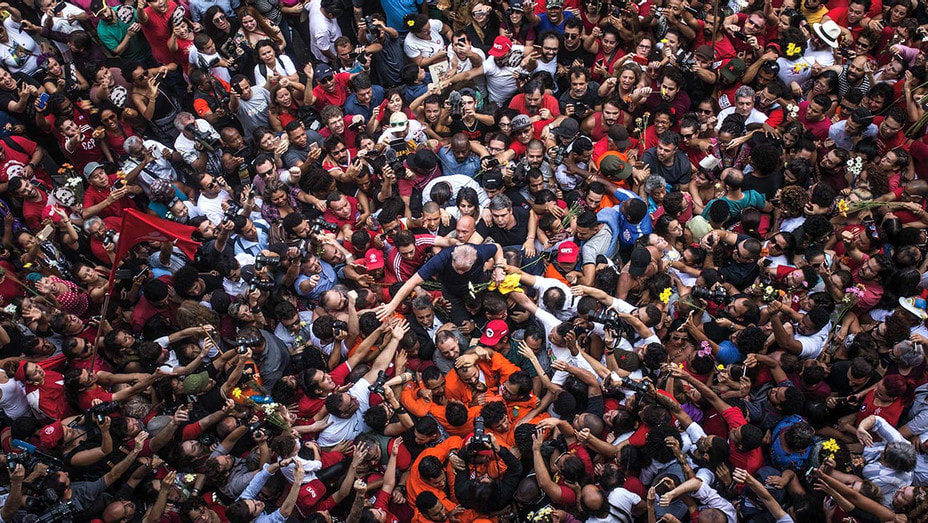No impassive historian or journalist, Costa makes emphatic use of her own family’s history and considerable connections to make her case that her side is on the side of the angels. Her parents were corporate scions who became class traitors and leftist activists during the pre-democratic military rule, and both spent time in jail and in hiding. Many of their comrades weren’t as fortunate, suffering torture and death at the hands of the government. One of the tortured is Dilma Rousseff, a striking figure who’s given an intro like she’s in the Copa scene of Goodfellas. Rousseff describes the key to getting through a torture session as a series of mental hills. Just hold out for one more minute, and then one more after that, and so on. That she becomes the duly elected president of a country that probably still contains people that tortured her is an incredible story, and the adulation of Costa’s camera makes it apparent that she’d much rather be making a film about Rousseff’s triumphant and inspiring life.
Instead, The Edge of Democracy gives a brisk summary of 21st century Brazilian politics, starting with the presidency of the iconic working-class hero Lula and culminating in the shady election of the repulsive Jair Bolsonaro. In the middle, Rousseff was impeached and removed from office for having the bad luck to be president in a contracting economy, spurred on by a rival who undercut her legitimacy at every turn. Lula could conceivably have run again against Bolsonaro, but he was thrown in jail after a long investigation that has since been exposed as corrupt to its core. Costa’s reverence for Rousseff is tempered by the acknowledgement of her errors along the way, including an inability by her and by Lula to address the rampant corruption in the state-owned oil company Petrobras that contributes to both of their downfalls. The film could not be called an impartial deconstruction, but the refusal by Costa to insist that her political heroes did everything right improves her film. Her disappointment that Lula and Rousseff weren’t able to anticipate how their enemies would ensnare them gives the film’s second hour a heavy air of impending doom.
The doom arrives with Bolsonaro, withheld until the film’s final tailspin and then bursting on the screen as a torture apologist and national embarrassment. There’s no better incarnation of the yellow and green mob’s collective id than him, a proud know-nothing who prizes physical strength and domination above all else. It won’t be Bolsonaro who clips on the jumper cables if he makes his wildest dreams come true, but one of these screaming maniacs who’ll gleefully enact their power fantasies on their fellow citizens. Costa is present for their rallies and other pivotal moments of this period, finding herself in Lula’s car as he willingly reports to jail. To the end, she laments that he and Rousseff are being defeated and sidelined, but objectivity is impossible with Bolsonaro in one corner. The Edge of Democracy is film as historical document, a primer for the uninformed and a future resource for whoever tells the whole story of this era in Brazil, provided such a telling is permitted at that time. B+

 RSS Feed
RSS Feed